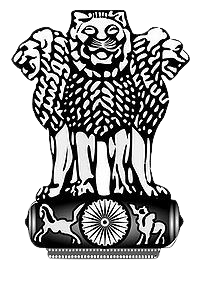heading
The Objects of The Council
The Objects of the Council as defined in the Memorandum of Association are:
- To participate in the formulation and implementation of policies and programmes relating to India's external cultural relations;
- To foster and strengthen cultural relations and mutual understanding between India and other countries;
- To promote cultural exchange with other countries and peoples;
- To establish and develop relations with national and inter-national Organization in the field of culture;
- To take such measures as may be required to further these objectives.
Rules & Regulations
Rules & Regulations as modified by the General Assembly on February 24, 1979:
These amendments take effect from March 1, 1979 except the clauses relating to the Constitution of the General Assembly and the Governing Body. The present General Assembly and Governing Body shall continue up to the newly stipulated tenure of 3 years from the date of their constitution.
- Definition
- Organization
- Authorities of the Council
- General Assembly
- Functions of the General Assembly
- Meetings of the General Assembly
- The Governing Body
- Functions of the Governing Body
- Meetings of the Governing Body
- Finance Committee
- Functions of the Finance Committee
- Office Bearers of the Council
- President
- Vice-Presidents
- Director General
- Financial Adviser
- Fellows of the Council
- General
Definition
In these Rules and Regulations the following words shall have the following meanings unless inconsistent with the subject or context:
- The Council shall mean The Indian Council For Cultural Relations.
- The General Assembly shall mean the General Assembly of the Council referred to in these rules.
- The Governing Body shall mean the Governing Body of the Council referred to in these rules
- The President shall mean the President of the Council referred to in these rules.
- Vice-Presidents shall mean the Vice-Presidents of the Council referred to in these rules.
- Members shall mean the Members of the Council referred to in these rules.
- Director General shall mean the Director General of the Council appointed under these rules.
- Financial Adviser shall mean the Financial Adviser of the Council appointed under these rules.
- Funds shall mean the Funds of the Council including all movable and immovable property.
- Sections shall mean the Sections of the Council, each Section representing a particular region or aspect of Council's work.
Organization
- The Council shall be a corporate body, shall have a perpetual seal and may sue and be sued in its corporate name.
- To facilitate its work the Council may set up sections at its headquarters, regional offices in various parts of India and Cultural Centres /Offices abroad.
Authorities of The Council
The following shall be the authorities of the Council:
- General Assembly;
- Governing Body;
- Finance Committee; and
- Any other Committee which the President, the General Assembly or the Governing Body may set up for discharging any of the functions of the Council.
General Assembly
- The General Assembly shall consist of the following:
- President;
- Three Vice-Presidents;
- Director General
- Financial Adviser;
- Five persons nominated by the Government of India;
- Two members of the Lok Sabha nominated by the Speaker of the Lok Sabha and one member of the Rajya Sabha nominated by the Chairman of the Rajya Sabha;
- One representative each of the Lalit Kala Akademi, Sahitya Akademi and Sangeet Natak Akademi; to be nominated by the competent authorities of these Academies;
- Not more than ten persons eminent in various spheres of Indian Culture to be nominated by the President of the Council in their individual capacity;
- Ten eminent artistes from the fields of performing, fine and plastic arts to represent institutions and Organizations of this category to be selected by the Governing Body;
- Fifteen representatives of universities or of institutions deemed to be universities, to be selected by the Governing Body;
- Five representatives of prominent scientific and technical institutions to be selected by Governing Body;
- Five representatives of research institutions and institutes of higher learning in areas of Humanities and Social Sciences and
- Five representatives of other Organizations interested in the work and objectives of the Council to be selected by Governing Body.
- All members, except where otherwise provided, shall hold office for a period of three years and shall be eligible for reappointment. In the case of any casual vacancy, however, the term of the new incumbent shall be the remainder of the term of the original incumbent whose place has fallen vacant.
Functions Of The General Assembly
The General Assembly shall have the following functions and powers:
- To consider and formulate the programmes of the Council in the light of policies laid down by the Government of India, and to advise the Government of India on Foreign cultural relations;
- To adopt the annual budget of the Council approved by the Governing Body;
- To consider and approve programmes and specific project's proposed by the Governing Body and to give directions in this behalf;
- To receive the annual report;
- To nominate auditors unless the Government of India arranges for the audit through the Comptroller and Auditor General of India, and to receive the audited accounts and the auditor's report;
- To elect two Vice-Presidents from among its members;
- To elect members of the Governing Body in accordance with Clause 7 (vi);
- To elect members of the Finance Committee in accordance with Clause 10 (iv);
- To frame its rules, regulations, bye-laws and rules of procedure; and
- To take such other measures as may be necessary to further the objectives of the Council.
Meetings of The General Assembly
- The General Assembly shall meet at least once every year at a place and on a date to be fixed by the President. Special meetings may be called by the President as and when necessary. The President shall call a meeting of the General Assembly if so requested by not less than two-third of the total membership of the General Assembly.
- One-third of the total membership shall form the quorum.
The Governing Body
The Governing Body shall consist of the following members, viz:
- President;
- Three Vice-Presidents;
- Director General;
- Financial Adviser;
- Three members nominated by the Government of India from among their nominees on the General Assembly;
- Nine members to be elected by the General Assembly from amongst its members of whom at least one shall be a member of the Rajya Sabha and two of the Lok Sabha.
Functions Of The Governing Body
The Governing Body shall have the following functions and powers:
- To exercise the executive authority of the Council subject to policy directives of the General Assembly;
- To be responsible for the supervision and control of the work of the Council;
- To formulate programmes of the Council and specific projects for submission to the General Assembly;
- To approve the annual budget of the Council subject to the financial limitations prescribed by the Government of India to be submitted for adoption by the General Assembly;
- To approve the annual report and accounts of the Council for adoption by the General Assembly;
- To select representatives of universities and of scientific, educational and cultural Organizations in India to be members of the General Assembly, in accordance with Clause 4 (ix) to (xiii);
- To approve the appointment of the Director General of the Council by the President of the Council and other members of the staff except those the power to appoint whom is generally or specifically delegated by it to the President or Director General or to any other officer or Committee provided that posts, the scales of Pay of which exceed Rs. 5000/- per month, will be filled in consultation with the Government of India. This latter condition will, however, not apply to non-administrative posts such as Council's Professors of Indian studies posted abroad; and
- to elect one representative to the Finance Committee in accordance with Clause 10 (v).
Meetings of The Governing Body
The Governing Body shall meet at least twice every year at a place and on a date to be fixed by the President. More meetings may be called by the President on his own initiative or at the request received in writing from two-third of the members of the Governing Body;
Seven members of the Governing Body present shall form the quorum.
Finance Committee
The Finance Committee shall consist of the following members, viz:
- Director General;
- Financial Adviser;
- One nominee of the Government of India;
- Two representatives of the General Assembly; and
- One representative of the Governing Body.
Functions of The Finance Committee
- The Finance Committee shall consider the budget estimates of the Council and make recommendations thereon to the Governing Body;
- It shall consider and make recommendations on matters relating to the administration and programme of the Council, which may be referred to it from time to time by the President or the Governing Body or the General Assembly;
- It shall prescribe the terms and conditions of service in respect of all posts under the control of the Council abroad.
Office Bearers of The Council
The following shall be the office bearers of the Council:
- President;
- Vice-Presidents;
- Director General and
- Financial Adviser
President
- The President shall be appointed by the President of India and shall hold office for three years ;
- The Governing Body may by resolution delegate to the President such of its powers for the conduct of the Council's business as it may deem fit. The decisions taken by the President under the powers delegated under these rules shall be reported at the next meeting of the Governing Body;
- The President may delegate such of his powers as he may consider necessary or advisable to the Vice-Presidents or the Director General;
- The President may nominate a person or persons to represent the Council at National and International Conferences or Organizations.
Vice-presidents
- There shall be three Vice-Presidents two of whom would be elected by the General Assembly of the Council from amongst its members and they shall hold office for a period of three years. The Foreign Secretary to the Government of India shall be ex-officio third Vice-President;
- In the absence of the President for whatever reason, the Vice-President designated by the President shall exercise all powers of the President.
Footnote to Clause 14. It being the decision of the General Assembly that when the President is in Delhi, the Director General shall seek orders on all relevant matters needing approval from authority higher than him direct from the President without having to go through any of the Vice-Presidents. The Director General shall however send proposals and papers on matters in which the Ministry of External Affairs, Government of India is financially and administratively involved to the President invariably through the Foreign Secretary and ex-officio Vice-President of the Council.
Director General
- The Director General shall be the principal Executive Officer of the Council and shall be appointed by the President of the Council with the approval of the Governing Body. His tenure, terms and conditions of service will be subject to the approval of the Governing Body;
- The Director General shall be ex-officio Member-Secretary of the General Assembly, the Governing Body and member of the Finance Committee;
- It shall be the duty of the Director General:
- To ensure that the accounts and assets of the Council are in proper order;
- To execute contracts on behalf of the Council;
- To formulate and present the programme of the activities and budget estimates to the Governing Body of the Council in consultation with the Financial Adviser and the Finance Committee;
- To conduct official correspondence on behalf of the Council and its agencies as necessary;
- To issue notices convening meetings of the authorities of the Council and to record minutes of these meetings; and
- To exercise such other powers as may be delegated or assigned to him by the General Assembly, the Governing Body and the President of the Council.
Financial Adviser
- The Financial Adviser of the Ministry of External Affairs, Government of India shall be the Financial Adviser of the Council;
- The Financial Adviser shall tender advice to the Council on financial matters referred to him by the President or any of the authorities of the Council;
- The Financial Adviser shall advise the Director General and the Finance & Accounts Officer on any matter of finance or accounts involving a question of policy.
Fellows of The Council
The Governing Body may nominate up to 30 eminent persons who have a record of distinguished service in the cause of international understanding through the promotion of closer cultural relations between India and other countries, to be Fellows of the Council.
General
- The General Assembly may, by a majority of not less than three-fourth of the members present and voting, amend this Constitution in such manner as the General Assembly may decide, except that an amendment of the objects of the Council and of the composition of the General Assembly and Governing Body will not be deemed to have been duly passed unless also supported by not less than one-half of the total membership of the General Assembly, and subsequently approved by the Government of India.
- In the case of officers of the Government of India who are nominated members of any of the Authorities or Committees of the Council in their ex-officio capacity, their nomination shall be by designation and it shall be open to them, with the permission of the President, to nominate another person to attend in their place a particular meeting of any of the Authorities or Committees of the Council of which they are members.
- No act or proceeding of the General Assembly or Governing Body or Finance Committee shall be invalid by reason only of the existence of any vacancy amongst its members or any defect in its Constitution.
- Notwithstanding anything contained in these Rules, any action taken by former or existing authorities of the Council shall not be invalid, provided such action is not inconsistent' with the provisions of the Rules herein adopted.












